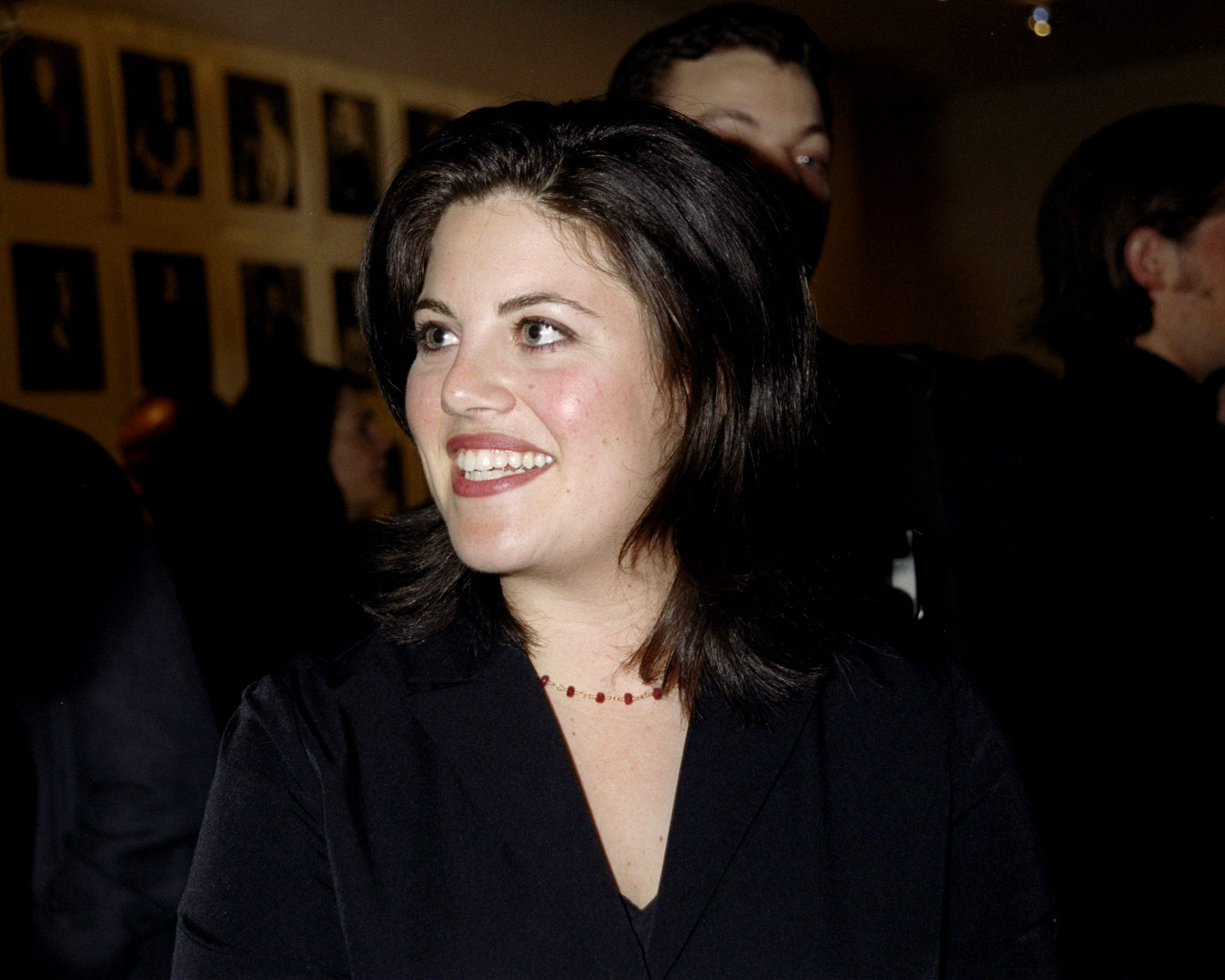
Has Monica Lewinsky been blessed with fame or burdened by notoriety? She regards herself, with good reason, as a victim of notoriety, perhaps the first victim of new, digital media, as well as a target for maternalistic old media scribes. And yet she sought, at least, vicarious fame in seeking a relationship with a very famous man. She may have had a role model in her mother, who published a book hinting that she’d had an affair with Placido Domingo. If the affair was a fantasy, as Domingo claimed, it reflected a perhaps inheritable interest in liaisons with celebrity alpha males. Would Bill Clinton have appealed to Lewinsky if he’d been a gas station attendant? Probably not.
I don’t offer this as criticism of Lewinsky’s character or motives. As I commented on NPR when the affair was all the rage, I would have slept with the president when I was 21 — if he hadn’t been Richard Nixon. You can deride the mutual allure between powerful older men and attractive younger women as a reversion to traditional gender roles, but you can’t deny its resilience, even or especially as women embraced their own sexual liberation. In this context, Clinton didn’t appear to me to be a sexual harasser and Lewinsky, at 21, didn’t seem any more sexually precocious or promiscuous than her female peers. But while many young women would have seized an opportunity to have sex with the president, few would have had the nerve to create one.
Lewinsky was then and remains now distinguished by her chutzpah and a Madonna-like talent for self-promotion. It makes her more interesting and complicated than caricatures of her as either sexual victim or “nutty” and “slutty” aggressor. It also makes it hard to know how to interpret her self-portrait, at 40, in Vanity Fair. Is it a marketing move or a cri de coeur, or both?
No one should take Lewinsky’s testimony and account of her motives in Vanity Fair at face value (one shouldn’t take at face value the presentation of any public figure). Did she really turn down offers in excess of $10 million that “didn’t feel like the right thing to do?” Perhaps. Did they not feel right morally or professionally, or both? Who knows? Maybe she has a sincere, relatively altruistic desire to speak up for victims of Internet bullying, but she also needs a job or consulting gig and a new public persona. Is her identification with Tyler Clementi a bit melodramatic? Yes, but so is her own life story.
Again, I don’t ask these questions to disparage her. We all need serviceable images and incomes, and Lewinsky has a particular need for public rehabilitation. I ask them to point out the difficulties of knowing public figures we’ve never met, although they sometimes feel like active presences in our lives. I ask to underscore the skepticism with which we should read stories by them designed for our consumption.
Lewinsky’s tale is told in the clichés of talk shows and pop therapies. She wants to share and care: “Perhaps by sharing my story, I reasoned, I might be able to help others in their darkest moments of humiliation.” She wants to “take back my narrative.” I wish her luck, really, and don’t assume that her use of canned language implies canned emotions. But as she says, she has a clear (understandable) purpose in telling this story, and I suspect she collaborated heavily with an editor or writer in an effort to market it most effectively.
How should we view Monica Lewinsky? It’s complicated. I remember her not just for the sex scandal she ignited, but for her fortitude in standing up to multiple FBI agents and prosecutors. In 1998, they reportedly ambushed and detained her at the Ritz Carlton Hotel in Washington, D.C., denying her access to an attorney and threatening her with felony charges if she didn’t cooperate. (Special Prosecutor Ken Starr disputed this account of the meeting, but to lawyers familiar with prosecutorial tactics, it rang true.) They reportedly wanted her to wear a wire, but she refused. Good for her. Maybe she was stronger than she appeared. Maybe she was buoyed by the chutzpah that enabled her encounters with the president or a sense of grandeur the affair bestowed. In any case, most 21 year olds, I suspect, would have caved.
How do we understand Monica Lewinsky? Only a few intentional or accidental celebrities can know what it’s like to be thrust into a harsh national and international spotlight at 21. Maybe Chelsea Clinton, subjected to public inspection in her teens, can understand, but I sure can’t imagine the effect of such exaggerated celebrity on your identity or sense of self-importance. Millions of people are paying attention to you, and maybe it’s attention you crave. At the same time, millions of people are mocking you, and you discover that there is, after all, such a thing as bad publicity.
Can Lewinsky succeed in reclaiming her narrative? You can’t blame her for trying, regardless of her motives, which I assume are mixed. Who among us consistently acts with purity of purpose? Monica Lewinsky probably can’t escape her past, so she might as well try to exploit it.
Wendy Kaminer is lawyer and social critic, the author of eight books and a correspondent at The Atlantic.
More Must-Reads from TIME
- Cybersecurity Experts Are Sounding the Alarm on DOGE
- Meet the 2025 Women of the Year
- The Harsh Truth About Disability Inclusion
- Why Do More Young Adults Have Cancer?
- Colman Domingo Leads With Radical Love
- How to Get Better at Doing Things Alone
- Michelle Zauner Stares Down the Darkness
Contact us at letters@time.com